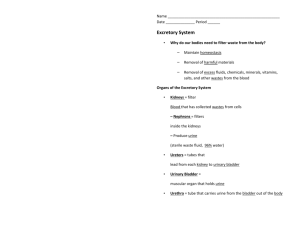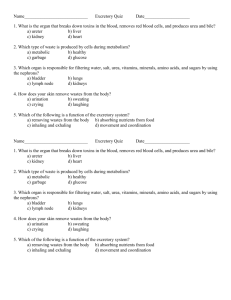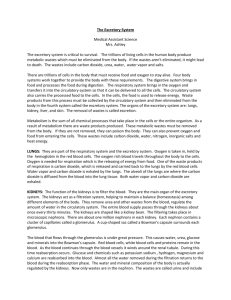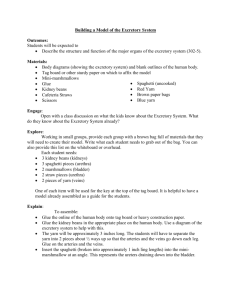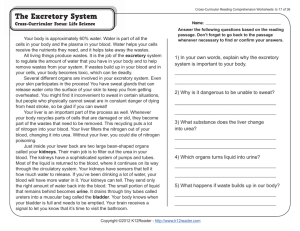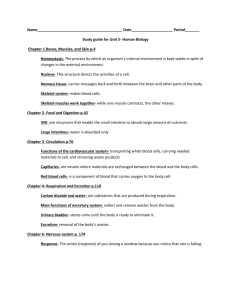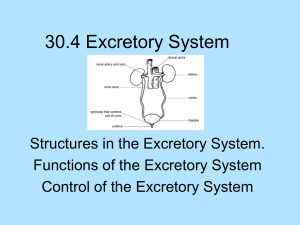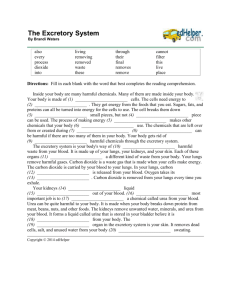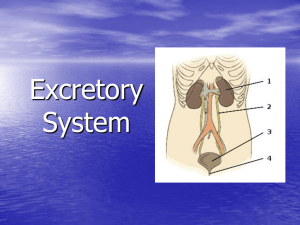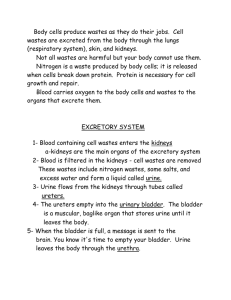Excretory System
advertisement
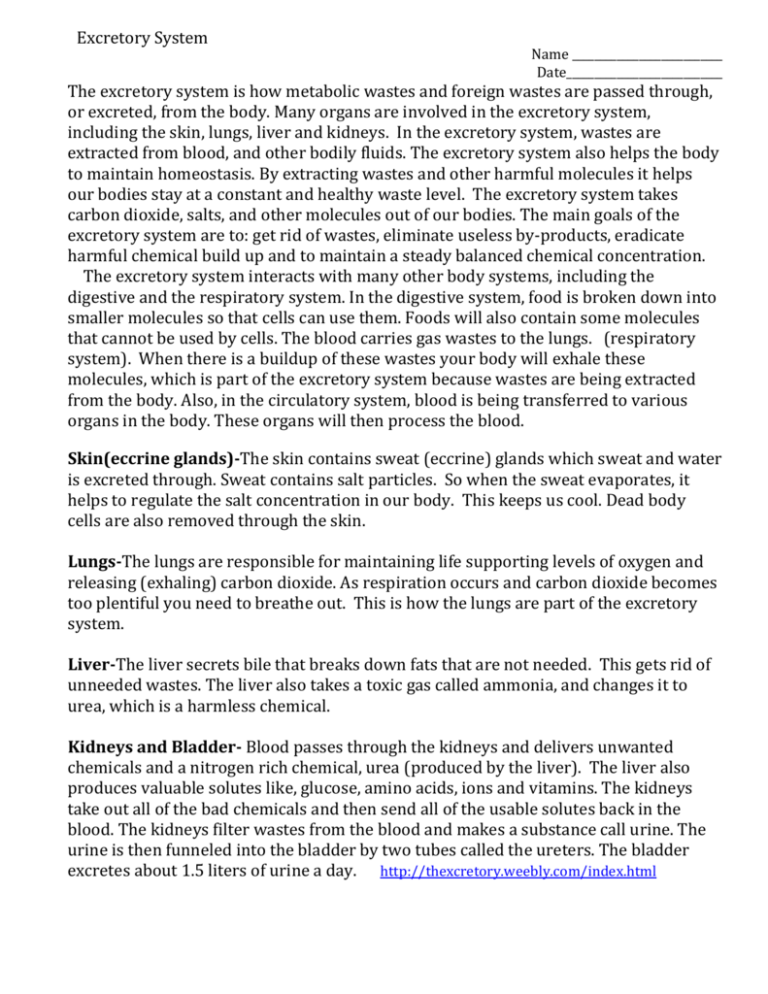
Excretory System Name ___________________________ Date____________________________ The excretory system is how metabolic wastes and foreign wastes are passed through, or excreted, from the body. Many organs are involved in the excretory system, including the skin, lungs, liver and kidneys. In the excretory system, wastes are extracted from blood, and other bodily fluids. The excretory system also helps the body to maintain homeostasis. By extracting wastes and other harmful molecules it helps our bodies stay at a constant and healthy waste level. The excretory system takes carbon dioxide, salts, and other molecules out of our bodies. The main goals of the excretory system are to: get rid of wastes, eliminate useless by-products, eradicate harmful chemical build up and to maintain a steady balanced chemical concentration. The excretory system interacts with many other body systems, including the digestive and the respiratory system. In the digestive system, food is broken down into smaller molecules so that cells can use them. Foods will also contain some molecules that cannot be used by cells. The blood carries gas wastes to the lungs. (respiratory system). When there is a buildup of these wastes your body will exhale these molecules, which is part of the excretory system because wastes are being extracted from the body. Also, in the circulatory system, blood is being transferred to various organs in the body. These organs will then process the blood. Skin(eccrine glands)-The skin contains sweat (eccrine) glands which sweat and water is excreted through. Sweat contains salt particles. So when the sweat evaporates, it helps to regulate the salt concentration in our body. This keeps us cool. Dead body cells are also removed through the skin. Lungs-The lungs are responsible for maintaining life supporting levels of oxygen and releasing (exhaling) carbon dioxide. As respiration occurs and carbon dioxide becomes too plentiful you need to breathe out. This is how the lungs are part of the excretory system. Liver-The liver secrets bile that breaks down fats that are not needed. This gets rid of unneeded wastes. The liver also takes a toxic gas called ammonia, and changes it to urea, which is a harmless chemical. Kidneys and Bladder- Blood passes through the kidneys and delivers unwanted chemicals and a nitrogen rich chemical, urea (produced by the liver). The liver also produces valuable solutes like, glucose, amino acids, ions and vitamins. The kidneys take out all of the bad chemicals and then send all of the usable solutes back in the blood. The kidneys filter wastes from the blood and makes a substance call urine. The urine is then funneled into the bladder by two tubes called the ureters. The bladder excretes about 1.5 liters of urine a day. http://thexcretory.weebly.com/index.html 3 Name ________________ Date _________________ THE EXCRETORY SYSTEM The Kidneys Directions: Place the words from the box at the bottom of the page next to the appropriate lines on the diagram. Kidney Ureter Bladder Urethra Adrenal Glands THE EXCRETORY SYSTEM from the Human Body Systems Series ©1998 AGC/ United Learning 1560 Sherman Av., Suite 100 Evanston, IL 60201 1-800-323-9084 Fax 847-328-6706 www.agcunitedlearning.com e-mail: info@agcunited.com
